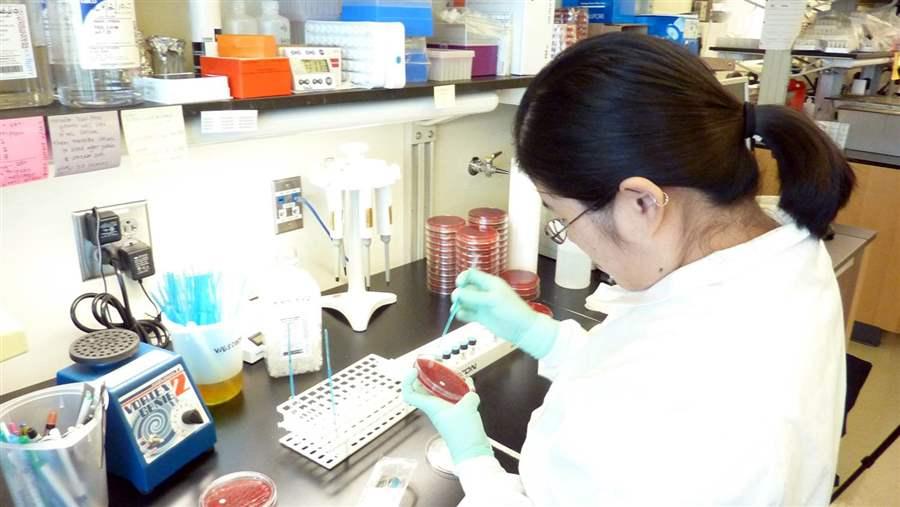Pew Applauds Senate Committee for Advancing Key Antibiotics Legislation
Bipartisan bill would create targeted pathway for approval of urgently needed new drugs

The bipartisan PATH Act would establish a new drug pathway—a unique mechanism the Food and Drug Administration could use to review and approve new antibacterial drugs for patients with serious and life-threatening bacterial infections that are resistant to current treatments while maintaining current standards of safety and effectiveness.
WASHINGTON—The U.S. Senate Committee on Health, Education, Labor and Pensions (HELP) today passed the Promise for Antibiotics and Therapeutics for Health (PATH) Act, a bipartisan bill introduced by Senators Orrin Hatch (R-UT) and Michael Bennet (D-CO) that would advance the development of new antibiotics for seriously ill patients with unmet medical needs. Elizabeth Jungman, director of public health programs at The Pew Charitable Trusts, issued the following statement:
“We applaud the U.S. Senate HELP Committee for taking an important step forward in addressing the critical public health threat of antibiotic resistance with this bipartisan legislation. It is a welcome counterpart to similar legislation passed last year in the House of Representatives in the 21st Century Cures Act, another bipartisan effort.
“Antibiotic-resistant bacteria continue to emerge and spread at an alarming rate, and are becoming increasingly difficult—sometimes impossible—to treat with existing medications. Millions of patients acquire serious and life-threatening infections in the U.S. each year, and tens of thousands die as a result. At the same time, the development of new antibiotics has slowed, leaving too many patients with few or no treatment options.
“The bipartisan PATH Act would establish a new drug pathway—a unique mechanism the Food and Drug Administration could use to review and approve new antibacterial drugs for patients with serious and life-threatening bacterial infections that are resistant to current treatments while maintaining current standards of safety and effectiveness. The bill also contains important provisions to help ensure that these drugs are used by patients with no remaining options.
“This targeted approach would allow smaller clinical trials that focus on the specific, high-risk patient populations that need these new antibiotics. This is key, since only a small number of patients typically contract these highly drug-resistant infections, and even fewer meet the requirements to participate in clinical trials. FDA could conduct risk-benefit assessments tailored to the limited populations of patients with potentially fatal infections and little or no chance of successful treatment with currently available medications.
“We are encouraged to see this legislation advancing, and thank Sens. Hatch and Bennet, as well as the HELP Committee chairman and ranking member, Senators Lamar Alexander (R-TN) and Patty Murray (D-WA), for their commitment to this serious public health issue. Although no single policy will fully meet the complex challenges posed by antibiotic resistance, a targeted pathway for antibiotic approvals is a critical part of the solution, and we strongly urge the full Senate to pass the PATH Act.”
###
The Pew Charitable Trusts is driven by the power of knowledge to solve today’s most challenging problems. Learn more at www.pewtrusts.org.












